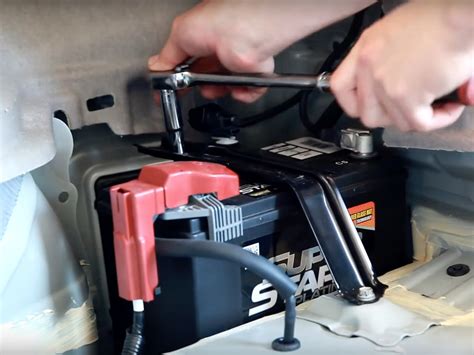The 2005 Toyota Prius is a hybrid electric vehicle that has become increasingly popular due to its fuel efficiency and environmental friendliness. However, like all batteries, the Prius battery will eventually need to be replaced.

Replacing the 2005 Toyota Prius battery can be a daunting task, but it is important to ensure that your vehicle continues to operate efficiently and safely. This guide will provide you with all the information you need to know about 2005 Toyota Prius battery replacement, including the cost, process, and tips for extending the life of your battery.
Understanding the Toyota Prius Battery
The Toyota Prius battery is a nickel-metal hydride (NiMH) battery. NiMH batteries are known for their long lifespan and durability, but they eventually lose their ability to hold a charge over time.
The 2005 Toyota Prius battery pack consists of 28 modules, each of which contains six individual battery cells. The battery pack is located under the rear seat of the vehicle.
Symptoms of a Failing 2005 Toyota Prius Battery
There are several symptoms that may indicate that your 2005 Toyota Prius battery is failing, including:
- Decreased fuel efficiency
- Reduced acceleration power
- Difficulty starting the vehicle
- Warning lights on the dashboard
- Battery error codes
Cost of Replacing a 2005 Toyota Prius Battery
The cost of replacing a 2005 Toyota Prius battery can vary depending on the make and model of the battery, as well as the location of the repair. However, you can expect to pay between $2,000 and $4,000 for a new battery.
Process of Replacing a 2005 Toyota Prius Battery
Replacing a 2005 Toyota Prius battery is a complex process that should be performed by a qualified mechanic. The following steps outline the general process:
- Disconnect the negative terminal of the battery.
- Remove the battery pack from the vehicle.
- Disconnect the individual battery modules from the battery pack.
- Replace the old battery modules with new ones.
- Connect the individual battery modules to the battery pack.
- Install the battery pack into the vehicle.
- Connect the negative terminal of the battery.
Tips for Extending the Life of Your 2005 Toyota Prius Battery
There are several things you can do to extend the life of your 2005 Toyota Prius battery, including:
- Avoid deep discharging the battery.
- Keep the battery cool.
- Drive the vehicle regularly.
- Get the battery serviced regularly.
Frequently Asked Questions
How long does a 2005 Toyota Prius battery last?
The average lifespan of a 2005 Toyota Prius battery is between 8 and 10 years. However, the battery’s lifespan can vary depending on factors such as driving habits, climate, and maintenance.
How do I know if my 2005 Toyota Prius battery needs to be replaced?
If you are experiencing any of the symptoms of a failing battery, such as decreased fuel efficiency, reduced acceleration power, or difficulty starting the vehicle, you should have your battery tested by a qualified mechanic.
How much does it cost to replace a 2005 Toyota Prius battery?
The cost of replacing a 2005 Toyota Prius battery can vary depending on the make and model of the battery, as well as the location of the repair. However, you can expect to pay between $2,000 and $4,000 for a new battery.
Can I replace the 2005 Toyota Prius battery myself?
Replacing a 2005 Toyota Prius battery is a complex process that should be performed by a qualified mechanic. Attempting to replace the battery yourself could void your warranty and could damage the vehicle.
What are the benefits of replacing my 2005 Toyota Prius battery?
Replacing your 2005 Toyota Prius battery can provide several benefits, including:
- Improved fuel efficiency
- Increased acceleration power
- Reduced emissions
- Peace of mind
Conclusion
Replacing the battery in a 2005 Toyota Prius is an important maintenance task that can help to ensure that your vehicle continues to operate efficiently and safely. By following the tips in this guide, you can extend the life of your battery and save money on replacement costs.
